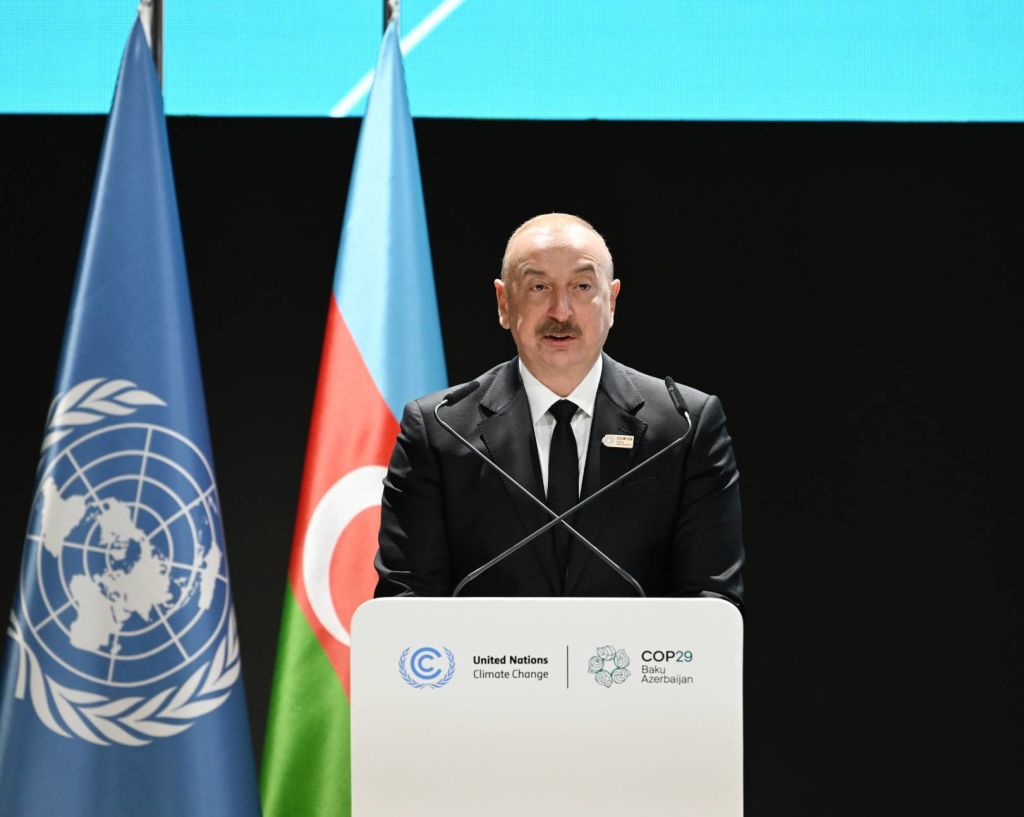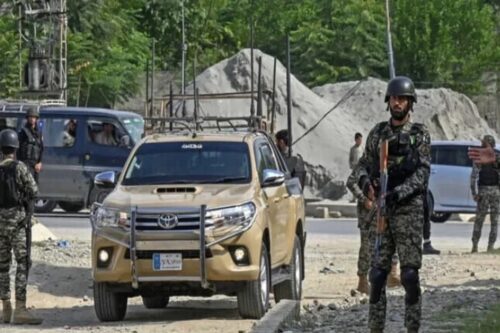
Diplomatic skirmishes at COP29: Euractiv recaps Azerbaijan’s climate conference
Azerbaijan’s President Ilham Aliyev’s fiery rhetoric and fossil fuel advocacy overshadowed the COP29 global climate agenda and raised questions about Azerbaijan’s commitment to meaningful environmental progress, Euractiv writes.
On 11 November, Aliyev opened the conference by fiercely criticizing Western “hypocrisy.” Two days later, he escalated rhetoric by accusing France and the Netherlands of maintaining “neocolonial” relationships with their overseas territories.
Aliyev also targeted broader European institutions at the summit, accusing the European Parliament and the Council of Europe of being “symbols of political corruption” and holding them and French President Macron responsible for “killings of innocent people.”
Highly rare in the history of COP talks, his frank and unforgiving political attacks quickly drew backlash from European diplomats and officials alike.
French Ecological Transition Minister Agnès Pannier-Runacher called the comments “unacceptable” and “beneath the dignity of the COP presidency.” In protest, she cancelled her trip to the talks, opting to support the French and EU negotiating teams remotely.
The diplomatic scuffle escalated further on 19 November when the French Foreign Ministry summoned Leyla Abdullayeva, Azerbaijan’s ambassador to France, in response to Aliyev’s remarks. In a retaliatory move, Anne Boillon, France’s ambassador to Azerbaijan, was also summoned by the Azerbaijani Foreign Ministry the next day (20 November), citing “actions targeting Azerbaijan and undermining the normalization process [between Azerbaijan and Armenia].”
EU’s Climate Commissioner, Wopke Hoekstra, also jumped in support of France. “The accusations of neocolonialism directed at the Netherlands and France are entirely inappropriate and do nothing to support progress,” he said.
Aliyev has increasingly embraced anti-colonial rhetoric against France as relations with Paris have deteriorated, especially after Azerbaijan’s takeover of Nagorno-Karabakh last year. Following this event, he accused France of destabilizing the South Caucasus by supporting “separatist trends.”
Moreover, through the Baku Initiative group, Azerbaijan supports pro-independence activists in areas like French Polynesia and New Caledonia, claiming to promote decolonization. This initiative has further strained Azerbaijan’s relationship with France.
In this context, Aliyev’s remarks targeting European countries during COP29 have led to suspicions that Azerbaijan is using the global summit to further its political interests instead of genuinely addressing climate issues.
As a petrostate, Azerbaijan relies heavily on oil and gas, which make up around 90% of its exports and 60% of its state budget.
In his opening speech, Aliyev staunchly proclaimed fossil fuels as a “gift from God,” arguing that Azerbaijan “should not be blamed” for producing them. Meanwhile, Elnur Soltanov, the head of Azerbaijan’s COP29 team, tried to strike gas deals, casting doubt on the country’s genuine commitment to meaningful emissions reductions.
Already under scrutiny for using COP29 as a greenwashing opportunity amid grave human rights abuses, Aliyev lashed out at civil society groups advocating for a boycott of the event.


